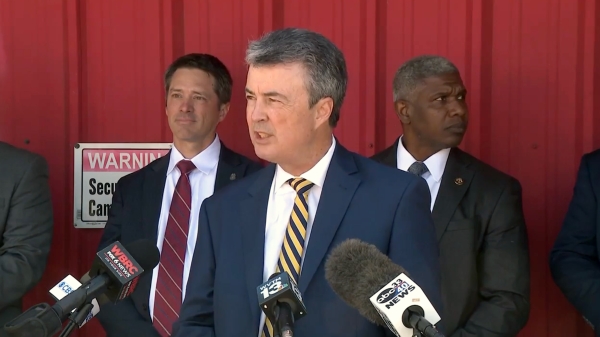|
Getting your Trinity Audio player ready...
|
The Alabama Ethics Commission welcomes a review of its policies by a court but believes it is following existing law by adopting a policy stating it has no duty to turn over exculpatory evidence collected during investigations, a statement from Ethics Commission Executive Director Tom Albritton said.
Albritton’s statement came in response to a lawsuit filed on Monday by the Alabama Attorney General’s Office alleging the Commission is in violation of the Brady rule, which requires disclosure of exculpatory or impeachment evidence to those on trial, and that the Commission’s advisory opinion that established that protocol was improper.
“We disagree with the AG’s analysis and conclusions because the Opinion accurately reflects existing case law on the issue, and the Commission is bound by that precedent,” Albritton wrote. “As stated by the Commission publicly when they approved the Advisory Opinion, however, the Commission welcomes a court of competent jurisdiction to review these issues in light of the applicable statutory provisions and existing case law and will abide by whatever direction that Court gives us.”
The AG’s office claimed in its lawsuit that the decision by the Commission effectively tainted all referrals that it forwarded to the AG and county district attorneys for prosecutions, because those offices couldn’t rely on the fact that the investigations weren’t compromised by the withholding of evidence. As a result, the lawsuit stated, Ethics Commission referrals are now “useless.”
However, according to a source familiar with the discussions that took place among Commission staff and Commissioners when finalizing the Advisory Opinion, the Commission merely adopted guidelines of a grand jury and sought to protect witnesses and witness testimony from public disclosure.
“Basically, the process is not much different than what happens when the AG’s office goes through a grand jury,” the source said. “At least with (the Commission) the accused gets a reasonable opportunity to defend themselves. With a grand jury, all the information is secret and the target of that investigation sometimes isn’t even aware that they’re the target until the indictment is returned and is made public. (The Commission’s) process is very similar in regards to protecting information and witnesses’ identities.”
The Ethics Commission cannot impose criminal penalties on the target of an investigation. If the Commission’s investigation uncovers probable cause that a crime could have been committed, the commissioners can vote to refer the case to the AG’s office or a county DA for prosecution. At which point, those offices would review the Commission’s findings and initiate a formal criminal investigation or determine that there isn’t enough evidence to proceed.
In the course of those investigations or prior to any potential trial, any exculpatory or impeachment evidence would have to be disclosed to the defendant.
“What Marshall is asking the Commission to do is basically open up the entire case file to the subject of any investigation – a move that would have an extremely chilling effect on anyone who might consider referring potential ethics crimes,” the source said. “This is politically motivated to damage the Commission.”
Marshall and the Ethics Commission have been sparring with each other for nearly two years now. Several sources said the problems began shortly after the Ethics Commission issued an opinion stating that transfers between federal political action committees were also illegal under Alabama law.
Marshall was the subject of an ethics investigation in 2018 after he accepted more than $700,000 in dark money donations that many felt were illegal under Alabama’s PAC-to-PAC transfer ban. He came within a single vote of being referred by the Ethics Commission for prosecution.
In 2020, the Alabama Democratic Party asked the Commission if it could accept federal donations similar to the donations Marshall took in. In an advisory opinion, the Commission said such donations are illegal, cutting off a major source of election funding from outside of the state.
A source familiar with the opinion told APR that Marshall privately expressed disagreement with the opinion and was angered by it.
Over the course of the last two years, the AG’s office and Ethics Commission have clashed on a number of cases, beginning with an issue tied to the North Birmingham EPA scandal and former EPA administrator Trey Glenn.
The offices also fought over two other cases, including one involving former Montgomery Police Chief Earnest Finley, who had ethics charges against him dropped. The fallout from that ordeal included Marshall stripping an Ethics Commission investigator of her assistant AG’s status.





















































